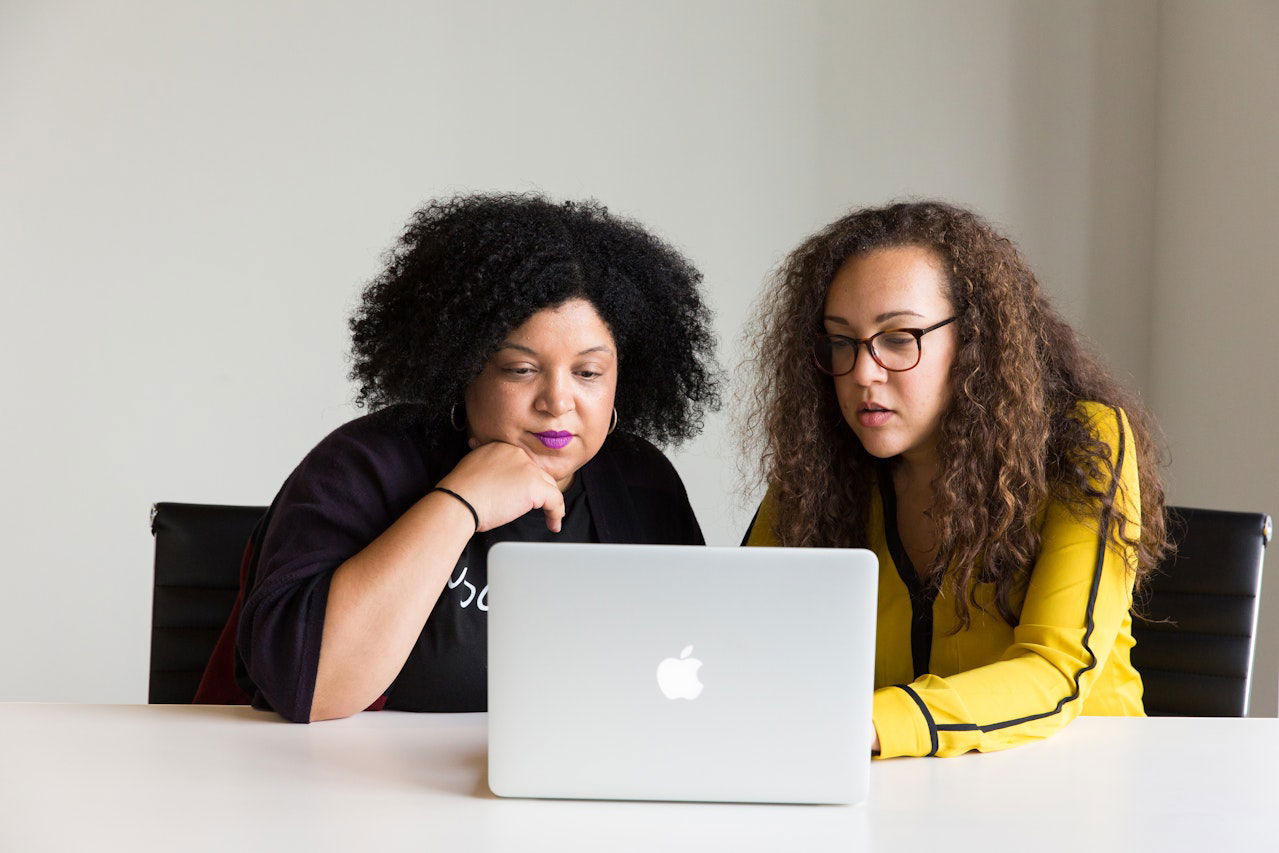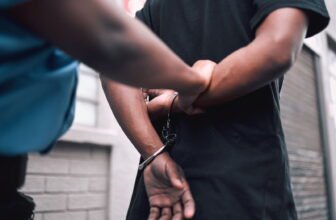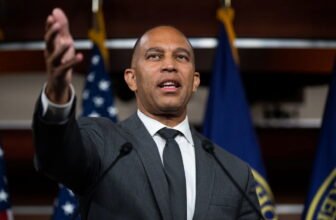
July 22, 2025
Critics argue that boycotting businesses owned by fellow Black people, regardless of origin, diverts energy and resources from the larger struggle against systemic racism and discrimination.
An alarming social media call to action, spearheaded by the hashtag #ShayaShelf, has sparked a contentious debate within the Black community, calling for a boycott of African-owned braiding shops, restaurants, and retail stores beginning August 1.
While proponents articulate grievances of disrespect, mistreatment, and undervaluation, particularly within the lucrative Black hair industry, this internal strife risks fracturing a community facing pervasive external anti-Blackness from colonizers and their minions.
The movement, gaining traction across various social platforms, stems from deeply felt experiences shared by some Black American women who describe encountering poor customer service, perceived exploitation, and a lack of reciprocal respect from certain African immigrant-owned businesses.
For many, the hair braiding salon, a cultural cornerstone, has become a flashpoint for these frustrations, leading to calls for economic withdrawal, with some advocating for the boycott to extend through the end of the year.
The initial spark for this movement came from TikTok user Shea, who posted a video on July 19, garnering nearly 50,000 views, urging Black Americans to recognize their economic power.
In her video, Shea declared, “Black Americans, come here, come here. This is a message for y’all, especially my black American women. Come here, listen. I think it’s time for us to show how strong and how powerful the Black American dollar is, since they don’t believe us. I think it’s time to boycott the braiding shops.”
“That’s what I think it’s time to do. Time to boycott the braiding shops. Stop going. We know how to braid. Let’s braid our own hair, support our own small businesses. Stop going to the braid shops. Teach them how to have some f**king respect because they have none. Black American power, Black American dollar. They need us. We don’t need them. Remember that. Do I wish there could be unity in a community? Abso-f**king-lutely. But that ain’t going to happen until they give us our f**king respect, and they’ve never done it. So f**k all that, boycott time.”
Shea continued, “No more African braid shops. It’s time to boycott the African braid shops. Stop going. Let’s show them how powerful our black American dollar is since they think we can’t control this f**king narrative. Since they think we got everything. Let’s show them how much we really f**king got. Black American power. Again, I’m going to keep saying it. Like, follow, share, comment below. What you think?”
@shea_thecreator BOYCOTT AFRICAN BRAID SHOPS #boycott #blackdollar #diaspora ♬ original sound – Shea’s Shelf
“The ones that pay your bills. Because we black them out, I want to see how many white people are going to support y’all, right? I want to see how many of y’all businesses really want to be able to stay afloat month after month of black people not supporting you, right? Like, let’s really be about it. So in support of Shaya’s shelf, I am even pushing past August, but it starts August 1st, okay? Complete, total blackout on Africans, period, okay? Let them know what time it is.”
@ray.bandz4 #imnotafrican #fypシ #blkppltiktok #fyp #xyzbca #blacktiktok ♬ original sound – swt.bby.ray
@ray.bandz4 📣 Caption: Road to 1K! 🚨 Drop a 🔥 and follow EVERYONE in the comments — no ghosting, we’re building real support! Let’s grow together 💯 #FollowTrain #SupportBlackCreators #FYP #GrowTogether #SmallCreatorSupport #RoadTo1K #MutualsOnly #CreatorCommunity #imnotafrican #fypシ #blkppltiktok #xyzbca #blacktiktok
However, the calls to action have met significant pushback, raising profound questions about solidarity and strategic focus. Critics argue that boycotting businesses owned by fellow Black people, regardless of origin, diverts energy and resources from the larger struggle against systemic racism and discrimination. This internal economic conflict, they contend, plays directly into narratives that undermine Black unity, potentially harming entrepreneurs who are themselves navigating complex challenges as immigrants.
Fortunately, there were Black Americans who quickly called out the foolish sentiment of these calls to action.
😐I’ve never seen or heard of some of us dedicating a month to 💰boycotting [Jews/Europeans, Hispanics, Asian, East Indians, etc…]
🧐Of all groups you choose to boycott Africans??? 🤔Not the others?
🫤Some of you are LITERALLY playing someone else’s game… 🧠THINK!!! Smmfh. pic.twitter.com/UzYHQubML5— Me®¢eπ∆r¥ (@24th_Infantry) July 22, 2025
Some Black Americans plan to boycott African-owned businesses starting on August 1st planned protest.
What have Africans in America done to deserve this? Our ancestors would be rolling in their graves right now! pic.twitter.com/7aTNmqTIm7
— Chudé (@chude__) July 22, 2025
The Chinese and the Asians they abuse, black women all day long in their beauty salon. You never see these black Americans for boycott against their business.. but they’re calling for a boycott against African business. FBA ADOS they are agent of white supremacist and right wing… https://t.co/EOYRjMUJG6
— Don Salmon (@dijoni) July 22, 2025
Honestly, I wished they (FBA) would put more effort into actual political endeavors, than whatever xenophobic nonsense this boycott meant to be.
Out of all the ethnicities (White, Asian, Arab, Hispanic, Indian, etc.) in America that have disrespected Black Americans over the… pic.twitter.com/biMkPD0FSS
— Scion (PanAfroCore) (@ScionofCulture) July 22, 2025
Boycotting Africans over Asian stores that PROFIT from using our hair and beauty is INSANE💀 https://t.co/RNu0kbZpij
— TO-LU🇳🇬🇺🇸 (@Low455T) July 22, 2025
I’m seeing on TikTok that some black Americans are planning to boycott African businesses in America from August 1st. The CIA don’t have to do nothing
— ARCC (@ashlieghropa) July 21, 2025
Black Enterprise highlighted a seemingly growing chasm between African immigrants and Black Americans, rooted in the caution many Nigerian parents reportedly give their children before traveling to the U.S. Media personality Morayo Afolabi-Brown revealed that some parents advise their kids to steer clear of African Americans—warning them of drugs, unplanned pregnancy, and other cultural stereotypes—and instead to “stay with the white people.”
The advice, though often meant to protect, inadvertently strains unity across the Black diaspora and overlooks the foundational role Black Americans played in establishing opportunities through struggle and sacrifice as immigrants come to this country. While acknowledging migrant anxieties, Afolabi-Brown urges against allowing these inherited fears to derail a broader, shared mission: confronting systemic racism and social injustice together. As she explains, the real challenge isn’t internal division, but bigger and realer enemies like structural inequality and racial violence—forces far more harmful than misdirected caution within the community. Further, as articulated in an IBW21 commentary from January 2020, titled “Understanding the Division Between African Americans and Africans,” the notion of cultural purity is often a misunderstanding when applied to Black Americans.
The piece argues, “African Americans are themselves a blend of different ethnic groups. Akan, Yoruba, Igbo, Mandé, Fulani, Kongo, Temne, Ewe, Edo, Efik, Fon, Mossi, and Ga are just some of the many ethnic groups that African Americans descend from.”
This perspective challenges any assertion of cultural insensitivity when Black Americans blend various African customs, as their heritage is inherently a mosaic of these diverse traditions.
The commentary also highlights the reciprocal influence between the diaspora and the continent, noting that “the Black Power movement among African Americans in the 1960s and 1970s helped to influence a cultural revival among Africans.”
Nigerian musician Fela Kuti famously observed Black Americans within the United States, opining, “It’s crazy; in the State, people think the Black Power movement drew inspiration from Africa. All these Americans come over here looking for awareness; they don’t realize they’re the ones who’ve got it over there. We were even ashamed to go around in national dress until we saw pictures of blacks wearing dashikis on 125th street.”
“I started thinking. I saw how everything works there; everything functions. I saw how great America is, and realized that to he a great man, you have to have a great country behind you. I had no country, just a bunch of Africans running around in suits trying to be Englishmen. I decided to come back and try to make my country African.”
This historical context suggests that the relationship is one of mutual influence and shared struggle, rather than a one-sided dynamic.
Even within Africa, the piece noted, there has always been an excellent diffusion of cultures, a point emphasized by Trinidadian historian Hollis Liverpool, who wrote extensively on the extensive cultural mixing throughout the continent’s history.
“Today, Nigerian folk tales may be heard in Senegal, and the trickster hare of Zaire performs the same mischief as the spider trickster in Ghana and Togo. Similarly, West African musical instruments are equally known in the East and the South. The interplay of cultures and traditions of African kingdoms, states and empires before they were intruded upon by explorers, tells us something of the political and economic dynamics of the African continent then: an interplay of peoples and organizations.”
The underlying tensions are complex, rooted in cultural misunderstandings, economic disparities, and historical narratives that sometimes strain the relationship between Black Americans and African immigrants. Yet, the current moment demands a re-evaluation of priorities. Instead of internal economic warfare, many believe the focus should shift towards fostering dialogue, building bridges of understanding, and establishing collaborative economic ventures that uplift the entire Black diaspora.
Ultimately, the #ShayaShelf campaign, while born from legitimate grievances, serves as a critical mirror reflecting the urgent need for intra-community reckoning and strategic alignment. The path forward, for many, lies not in division but in recognizing shared struggles and uniting against the external forces that genuinely seek to diminish Black progress and prosperity.
RELATED CONTENT: New Jersey’s Misplaced Focus: 77-Year-Old Assata Shakur Tops The State’s Most Wanted List






